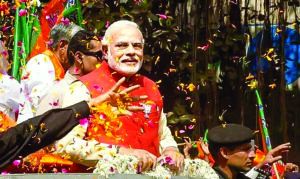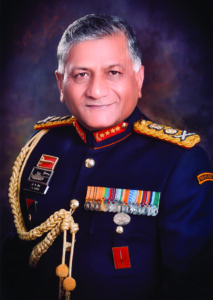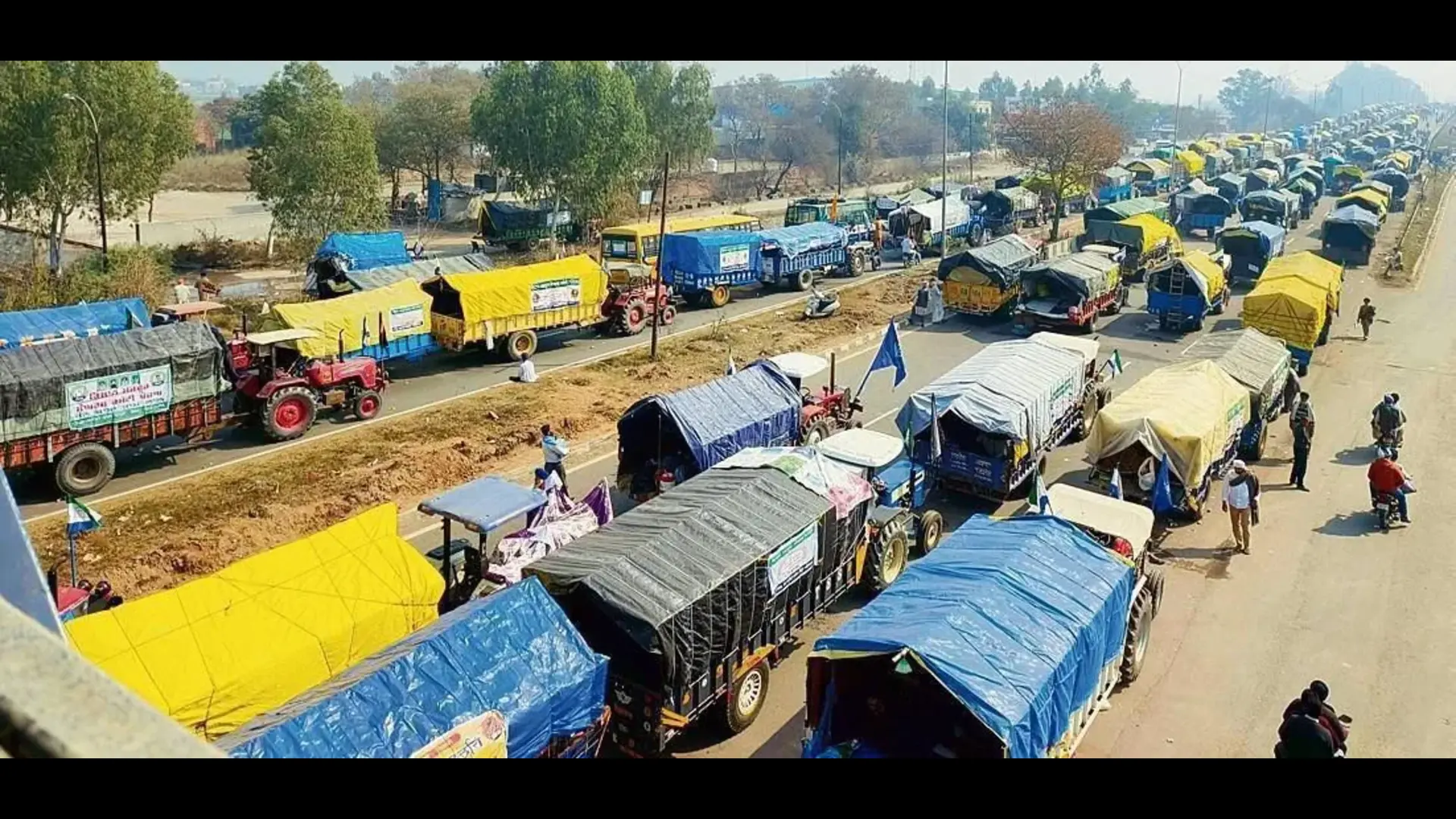Sometimes popularity of leaders is so high that margins in terms of votes set records. Pritam Munde, Narendra Modi, VK Singh, Rahul Gandhi and Mulayam Singh Yadav etched their names in this category.
Victories in Lok Sabha elections with the biggest margins are often seen as a reflection of a candidate’s immense popularity or the dominance of their political party in a particular region. Over the years, several candidates have won their seats with very large margins. Here are some notable examples:
Pritam Munde (2014)
Beed, Maharashtra: Margin: Over 6.96 lakh votes. – Pritam Munde, also from the BJP, won the Beed seat with the largest margin ever recorded in Lok Sabha elections.
She was born on 17 February 1983 and is a doctor and Indian politician who is the current Member of Parliament in the Lok Sabha from Beed. In 2014, she won with a margin of 6,96,321 votes – the highest ever in India’s electoral history. She is the second daughter of former BJP leader Gopinath Munde and her mother Pradnya Munde. In 2019 elections she emerged as victorious candidate by defeating Bajrang Sonwane of Nationalist Congress
Party by margin of 1.68 lakh votes. Gopinath Munde was Central Cabinet Minister earlier. She has one elder sister Pankaja Munde and younger sister Yashashari. She is a niece of Pramod Mahajan, and a cousin to Rahul Mahajan and Poonam Mahajan. NCP leader Dhananjay Munde is also her cousin. She married Gaurav Khade in 2009 and they have a son named Agastya Khade.
Narendra Modi

In 2014 Lok Sabha election from Vadodara constituency, Narendra Modi won the seat with a huge margin of over 5.70 lakh votes. He later became the Prime Minister of India. However, he later retained the Varanasi seat. In September 2013, Modi was named the BJP’s candidate for prime minister ahead of the 2014 Lok Sabha election. Prior to the election, Modi’s media image had centred around his role in the 2002 Gujarat riots but during the campaign, the BJP focused on Modi’s neoliberal ideology and the Gujarat model of development. The BJP sought to identify itself with political leaders who publicly opposed Hindu nationalism, including B. R. Ambedkar, Subhas Chandra Bose and Ram Manohar Lohia. Hindutva remained a part of the campaign; BJP leaders used Hindutva-based rhetoric in several states. Communal tensions were played upon, especially in Uttar Pradesh and Northeast India. A proposal for the controversial Uniform Civil Code was a part of the BJP’s election manifesto. The BJP’s campaign was assisted by its wide influence in the media. Modi’s campaign blitz cost around Rs 50 billion (US$630 million) and the BJP received extensive financial support from corporate donors. In addition to more-conventional campaign methods, Modi made extensive use of social media and addressed more than 1,000 rallies via hologram appearances.
The BJP won 31 per cent of the vote, and more-than-doubled its number of seats in the Lok Sabha to 282, becoming the first party to win a majority of seats on its own since 1984. Voter dissatisfaction with the Congress and with regional parties in North India, and support from the RSS were reasons for the BJP’s success. In states such as Uttar Pradesh, where the BJP performed well, it drew exceptionally high support from upper-caste Hindus, and its Muslim vote increased to 10 per cent. The BJP performed particularly well in parts of the country that had recently experienced violence between Hindus and Muslims. The magnitude of the BJP’s victory led many commentators to say the election constituted a political realignment away from progressive parties towards the right-wing. Modi’s tweet announcing his victory was described as being emblematic of the political realignment away from a secular, socialist state towards capitalism and Hindu cultural nationalism.
Modi was a candidate for the Lok Sabha constituencies Varanasi and Vadodara. He won in both constituencies, defeating Aam Aadmi Party leader Arvind Kejriwal in Varanasi by 371,784 votes and Madhusudan Mistry of the Congress in Vadodara by 570,128 votes. India’s president appointed Modi, who was unanimously elected leader of the BJP, Prime Minister of India. To comply with the law prohibiting MPs from representing more than one constituency, he vacated the Vadodara seat.
V.K. Singh

In 2014, Ghaziabad, Uttar Pradesh: Margin: Over 5.67 lakh votes. – Former Army Chief General V.K. Singh, representing the BJP, won the Ghaziabad seat with a huge margin.
General Vijay Kumar Singh (retd) is an Indian politician and a former four-star General in the Indian Army. He is the current Minister of State in the Ministry of Road Transport and Highways and Ministry of Civil Aviation in the Second Modi ministry. He previously served as Minister of State for External Affairs, Minister of State (Independent Charge) for Development of the North-Eastern Region and Minister of State for Statistics and Programme Implementation in the First Modi ministry.
During his military career, Singh served as the 24th Chief of the Army Staff (COAS) from 2010 to 2012. Singh took the Government of India to court in a dispute over his date of birth and subsequent retirement, becoming the first serving Indian Chief of the Army Staff to take legal action against the Indian government. After his retirement from the military, Singh joined the Bharatiya Janata Party (BJP) in 2014 and was elected as Member of Parliament to the Lok Sabha for the Ghaziabad constituency of Uttar Pradesh in that year’s general election. He was re-elected to the same seat in 2019.
Chandrababu Naidu (1999)
Kuppam, Andhra Pradesh: Margin: Over 5 lakh votes. – The Telugu Desam Party (TDP) leader and former Chief Minister of Andhra Pradesh won the Kuppam seat with a large margin.
Nara Chandrababu Naidu also known as Chandrababu Naidu is an Indian politician, statesman and the current leader of the opposition in the Andhra Pradesh Legislative Assembly. He also served as Chief Minister from 1995 to 2004 and as opposition leader from 2004 to 2014 of Andhra Pradesh. He has been the national president of the Telugu Desam Party (TDP) since 2015.
Naidu’s political career began in the 1970s with the Indian National Congress (INC). In 1978, he was elected to the Andhra Pradesh Legislative Assembly, and from 1980 to 1982, he served as a minister in the state cabinet. Afterwards, he switched party allegiance and joined TDP, which had been founded by Nandamuri Taraka Rama Rao, his father-in-law, whom he initially opposed. He gained the confidence of Rao, especially after helping thwart an INC attempt to oust Rao from his post as chief minister in 1984, becoming the party’s general secretary. Naidu served as a TDP Member of the Legislative Assembly (MLA) from 1989 to 1995, during which period he became a high-profile opposition leader. In 1995, he became the Chief Minister of Andhra Pradesh after an intra-party coup against the leadership of Rao.
During his two terms as Chief Minister, Naidu’s public image was that of an economic reformer and proponent of information technology-based economic growth. His policies brought modernisation and investments particularly to Hyderabad, where he directed the founding of HITEC City. He also had a role in national politics, first as the convener of the United Front in 1996. He supported the Bharatiya Janata Party (BJP)-led National Democratic Alliance (NDA) after the 1999 Lok Sabha elections, in which TDP won 29 seats, enhancing Naidu’s reputation as a nationally prominent politician. His leadership in IT and infrastructure was much ahead of his times and did not make sense to the voters as propaganda against his tech-driven policies in 2004 defeated his party by a coalition of INC and the Telangana Rashtra Samithi (TRS). In 2014, after having been the leader of opposition during the whole intervening period, Naidu returned as Chief Minister, winning in the now-residuary (due to bifurcation) Andhra Pradesh. Between 2014 and 2019, he developed the basic infrastructure for new Andhra Pradesh, brought in several big-ticket foreign investments such as Kia Motors and created thousands of jobs for the state’s youth.
In the 2019 Andhra Pradesh Legislative Assembly election, Naidu’s party faced an electoral setback, with TDP winning only 23 out of 175 seats. In 2023, Naidu was arrested by the Crime Investigation Department (CID) police in Andhra Pradesh due to alleged political vendetta and was released after 3 months, without any charges due to lack of evidence during Supreme
Ashok Kumar Yadav (2019)
Madhubani, Bihar: Margin: Over 4.80 lakh votes. – The BJP candidate won the Madhubani seat with a large margin.
Ashok Kumar Yadav is an Indian politician. He was elected to the Lok Sabha, lower house of the Parliament of India from Madhubani, Bihar in the 2019 Indian general election as member of the Bharatiya Janata Party. He was elected to the Bihar Legislative Assembly from Keoti (Vidhan Sabha constituency) as a member of Bharatiya Janata party in February 2005, October 2005 and again in 2010. He is the son of BJP leader Hukumdev Narayan Yadav.







